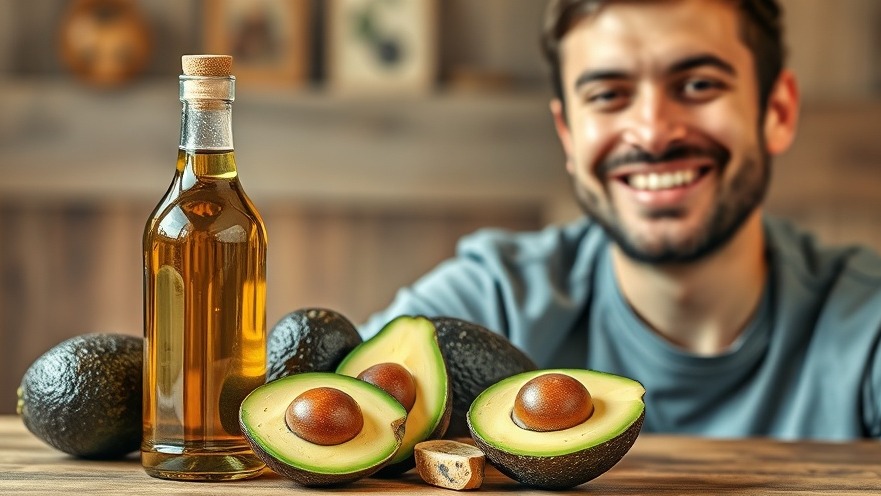
The Rise of Avocado Oil: Health Benefits You Should Know
In recent years, avocado oil has taken the culinary world by storm, often touted as a healthful choice for cooking and dressing salads.
This popularity raises a pivotal question: what are the actual health benefits of consuming avocado oil? To unpack this, let’s explore its nutrient profile and the science behind its health effects.
In What happens when you eat Avocado Oil, the discussion dives into the health effects of avocado oil, exploring key insights that sparked deeper analysis on our end.
Nutritional Breakdown: What’s Inside Avocado Oil?
Avocado oil primarily consists of healthy fats, particularly monounsaturated fats like oleic acid, which also predominates in olive oil.
In fact, avocado oil is remarkably similar in composition to its olive counterpart but slightly leans towards having more polyunsaturated fats and a bit less saturated fat, making it a heart-healthy option.
Apart from its fat composition, avocado oil is rich in antioxidants, including tocopherols, polyphenols, and phytosterols, which possess notable anti-inflammatory effects.
This nutrient density can support overall health and improve immune response, reinforcing why many choose avocado oil for their kitchens.
High Smoke Point: A Cook’s Best Friend
Another significant advantage of avocado oil is its high smoke point, around 250ºC for unrefined and even higher for refined versions.
This makes it suitable for high-heat cooking methods such as frying and sautéing, outperforming many other cooking oils in terms of stability.
However, it's essential to consider variation due to different avocado types and processing methods, which can affect smoke points.
Scientific Insights: Clinical Trials and Findings
While the benefits of avocado oil sound promising, it turns out that research specifically focusing on this oil is relatively scarce.
One interesting study indicated that consuming avocado oil could enhance the absorption of fat-soluble nutrients from meals, potentially boosting the nutritional value of salads and salsas.
Additionally, a trial comparing avocado oil to butter showed improved blood metrics, including lower insulin and triglyceride levels, suggesting that incorporating avocado oil into one’s diet can yield positive post-meal health metrics.
Choosing Quality: The Four Grades of Avocado Oil
When you're ready to purchase avocado oil, understanding its grading system can help ensure you make a beneficial choice. The four grades include:
Extra Virgin: This grade is made from high-quality avocados, cold-pressed without chemical solvents.
Virgin: Similar to extra virgin, but made from slightly lower quality fruit.
Pure: This is refined and often includes natural flavors, but it may also involve chemical processing.
Mixed or Blended: This type is combined with other oils like olive or canola, which can dilute its health benefits.
Though specific studies on each grading type are limited, knowing how these oils are produced can guide your purchasing decisions.
Responses from the Community: Your Thoughts Matter
As local food enthusiasts in Sacramento, we understand that our health choices are deeply intertwined with the community around us.
What types of fats do you use, and have you incorporated avocado oil into your diet? Community engagement can enrich our understanding and sharing of healthy practices, enhancing everyone's life in the area.
Conclusion: Embrace the Avocado Oil Revolution
Avocado oil stands out as a promising addition to a healthy diet, backed by its nutritious profile and potential health benefits.
While the studies are still emerging, its use in cooking presents an opportunity to enhance meal flavors while contributing positively to our overall health.
As you explore new culinary delights, consider giving avocado oil a place in your pantry. It's time to embrace its benefits not only for taste but as a pathway toward better health.
What are your thoughts on avocado oil? Join the conversation in the comments below!
 Add Row
Add Row  Add
Add 





 Add Row
Add Row  Add
Add
Write A Comment